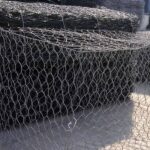Arm Yourself with Knowledge: Construction Fraud in Canada
If you’re looking to purchase a new home or do renovations on your existing home, you have to be aware of construction fraud. According to Grant Thornton’s report, costs of construction fraud in Canada are over $628,000,000 per year.
Knowing the signs and recognizing them as such, can save you hassle and heartache down the line, and keep your budget where you need it.
The industry is a prime target for fraud because of the way it works using multiple subcontractors and material suppliers, working simultaneously on one or multiple projects.
Even if the companies you work with are honest, not all of their subcontractors might be. Even if everyone directly involved is honest, these companies are still targeted by fraudulent parties who can use their access to confidential information to commit other frauds.
During my many years as a custom home builder, I’ve heard the horror stories of construction fraud and my only real advice is to do your research and check reviews. They really help. Ike Keesmaat of Keesmaat Homes.
The best way to stay protected is by being aware of the different weak spots that can be vulnerable to a fraudulent predator and being diligent in keeping close tabs on expenses and close contact with your contractor so that nothing can sneak past you.
It’s worth the initial investment to protect yourself.
Manipulation of Orders

Billing for unperformed work, manipulating change orders, charging for time-and-materials in a lump sum to hide the real numbers are all ways that fraudsters manipulate the orders to defraud the homeowner and builder.
You trust the contractor to scrutinize the orders for things like missing scope descriptions or higher charges that are out of the ordinary, and a trustworthy contractor will help identify charges that are fraudulent.
You should oversee all transactions, and request multiple estimates for any purchases or subcontractors so that hidden fees will disclose themselves.
Reverse Mortgage Fraud
If a fraudulent contractor provides a lower estimate; they may ring upon many extra charges that add up to much more than you are able or willing to pay; and force you to have to take out a reverse mortgage on your home to cover the difference.
They may even be tied in with the company they initially recommended to finance the reverse mortgage, profiting twice off the scam.
Always be sure that you have a very clearly defined scope of work
Substitution of Materials
When you build a home or do renovations, the materials selected are factored for cost as well as requirements to do the job. Fraudulent suppliers will substitute these materials for those of a lower cost and charge the same amount.
You can end up with costly repairs down the line due to inferior materials that don’t meet requirements for safety.
Unfortunately, subcontractors also can do the same thing, unbeknownst to you, the homeowner. These types of fraud also hurt the builder, because if they break down early enough the repairs may still be covered under home warranty, and their reputation will be damaged when their materials don’t hold up.
Make sure that you and the contractor himself inspect every material that is used, and ensure they are up to standards. Request multiple bids for all materials, so that variance between companies will show up as a red flag.
Lack of Defined Scope

When the scope of a job is not defined and the price isn’t set, you are vulnerable to corruption on any construction level. A specific contract is required to protect you and your project.
Should you choose to skip one or some of the details, you are vulnerable to bill padding with extra products they never purchased or charges for work that was never completed or even disappearing before they’ve completed the work after taking your money for expenses.
Always make sure that completion deadlines, materials, labor estimations and parameters for variance, and parameters for going outside of the total cost bid are all detailed in your contract, and that you aren’t paying ahead of time for work that could be left incomplete.
False Representations
When you’re dealing with multiple people, it also leaves you open to others posing as them going unnoticed. There are predators who will pose as the company you are working with and send you a bill for that work, and in actuality have nothing to do with the project at all.
Contractors can accept payment from you and then refuse it to subcontractors and suppliers, and these people will come back to you expecting to be paid. There are false payment apps embedded in advertising as well.
Always be certain before providing the requested payment that you’re working with a person you trust to represent the company. Pay attention to all the details including email addresses that could very, hidden recipients, or differences in websites.
If a bill is unexpected, make sure you have an explanation and verbal verification from your contractor before making any payments. Keep a close eye on your bank account so that you can identify any charges that may be fraudulent.
Construction fraud is prevalent in the Canadian construction industry, and anyone involved whether it’s you, the homeowner, building companies, subcontractors, and even suppliers can be a target.

Unfortunately, the industry is a great target for employees themselves to be the ones who are taking advantage of.
The good news is that if you have a solid, clear, and concise contract and keep your eyes out for any red flags you can reduce your risk of becoming part of this shocking statistic.
During my many years as a custom home builder, I’ve heard the horror stories of construction fraud and my only real advice is to do your research and check reviews. They really help. Ike Keesmaat of Keesmaat Homes.






